
Research & Blogs
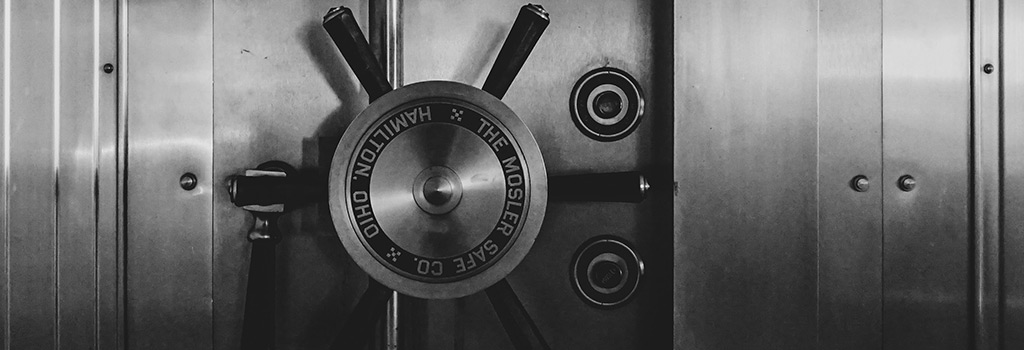
Gold Storage: Playing It Safe
Safe, adjective:
- free from harm or risk: unhurt
- a) secure from threat of danger, harm, or loss; b) success at getting to a base in baseball without being put out
- affording safety or security from danger, risk, or difficulty
- obsolete, of mental or moral faculties: healthy, sound
- a) not threatening danger: harmless; b) unlikely to produce controversy or contradiction
- a) not likely to take risks: cautious; b) trustworthy, reliable
Safe, noun:
- a place or receptacle to keep articles (such as valuables) safe, eg, gold storage
Storing Valuables Safely is a Challenge
Deciding where to safely store valuables, collectibles and important papers poses a problem for most of us. Estate planning documents, deeds, backup hard drives, old tax returns, stamps, coins, and family heirlooms are common candidates for safekeeping. So is gold. The answer to the safekeeping question is an important one and the consequences of getting it wrong increase dramatically as the value of the goods being stored increases. This can happen quickly when what is being stored is as valuable as gold.
Is a Safe Deposit Box the Right Solution For Gold Storage?
Once theft and fire risk are considered, many choose either some type of home vault or a safe deposit box. Home storage introduces several costs (purchase, installation, and maintenance of an adequate safe) and risks (break-ins or robbery) which prove unacceptable to many. As for bank-managed safe deposit boxes, it is important for the saver to understand just how appropriate and how safe these are when it comes to storing gold. For those willing to take the time to read the fine print, these details are made plain in black and white.
First, gold storage in safe deposit boxes are not considered a bank deposit and are therefore not insured by the FDIC. This is such a common misperception that the FDIC weighs in on it directly, advising banking clients that “no safe deposit box is 100% protected against things like theft, fire, floods, or other types of damage resulting in losses. Since protections are limited for safe deposit boxes, banks may advise customers to take their own safety precautions.”
JP Morgan Chase makes it plain in their lease agreement that “The contents of your safe deposit box are not protected against loss or damage under the insurance coverage maintained by the Bank or Federal Deposit Insurance Corporation. For your protection, you may wish to secure your own insurance through an insurance company of your choice. You must keep a complete list and description of all property stored in your safe deposit box and any available proof of ownership and store the list somewhere other than the box.”
In most cases only limited insurance is provided by the bank to customers in the event of loss or theft. For example, Bank of America’s safe deposit box rental agreement states its liability “… for any loss in connection with the Box, for whatever reason, shall not exceed ten (10) times the annual rent for the Box except as otherwise provided by law.” This amount would fail to cover the loss of even a single 100-gram bar of gold.
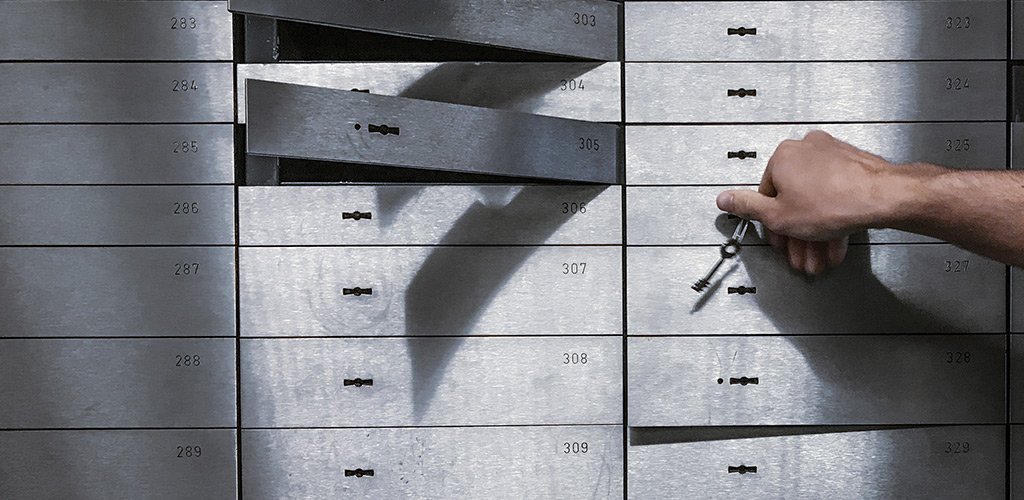
This lack of insurance of gold storage is standard practice not just in the United States, but internationally as well. In Switzerland for example, “if you want to insure your personal property, it is up to you as the renter to get third-party insurance. Unlike some non-bank safe deposit box providers, banks do not have insurance which covers the contents of safe deposit boxes against theft, fire, flooding, and other hazards.
Banks also cannot be held liable for gold storage, including the possible deterioration of stored property caused by humidity or mold. As the owner of the rental space, a bank may forcibly open a safe deposit box under exceptional circumstances (when instructed to by a Swiss court order, for example).” So, it seems in some cases, savers’ valuables are neither insured, nor are they private.
Second, despite the implication of safe in the name, bad things can and do happen to bank-manage safe deposit boxes. A wide variety of circumstances resulting in a loss, though perhaps unlikely, are not just theoretically possible, they can and do happen. The JP Morgan Chase lease agreement offers clarity on a few of these circumstances noting, “You understand and agree that safe deposit boxes and vaults are not fireproof, burglarproof or waterproof.”
This begs the question of what exactly they provide safety from?
Third, there are explicit value limitations in many safe-deposit lease agreements that make holding even a single kilogram of gold, not just ill-advised, but directly contrary to the lease agreement. The Well Fargo Safe Deposit Box Lease Terms uses all-caps to emphasize this point, “The contents of your Box are not insured by Wells Fargo or the Federal Deposit Insurance Corporation. The Box is not designed to withstand fire, explosion, intense heat, smoke, water, mold, building collapse or the effects of natural disasters.
”YOU AGREE THAT BASED ON YOUR AGREEMENT NOT TO PLACE CONTENTS IN YOUR BOX AT ANY TIME WITH AN AGGREGATE VALUE IN EXCESS OF $10,000 WELLS FARGO’S MAXIMUM LIABILITY WILL BE LIMITED TO $10,000 WITH RESPECT TO ANY CLAIM ARISING OUT OF, OR RELATED TO, THE LEASE AGREEMENT, LEASE TERMS, THE BOX AND/OR BOX CONTENTS.”
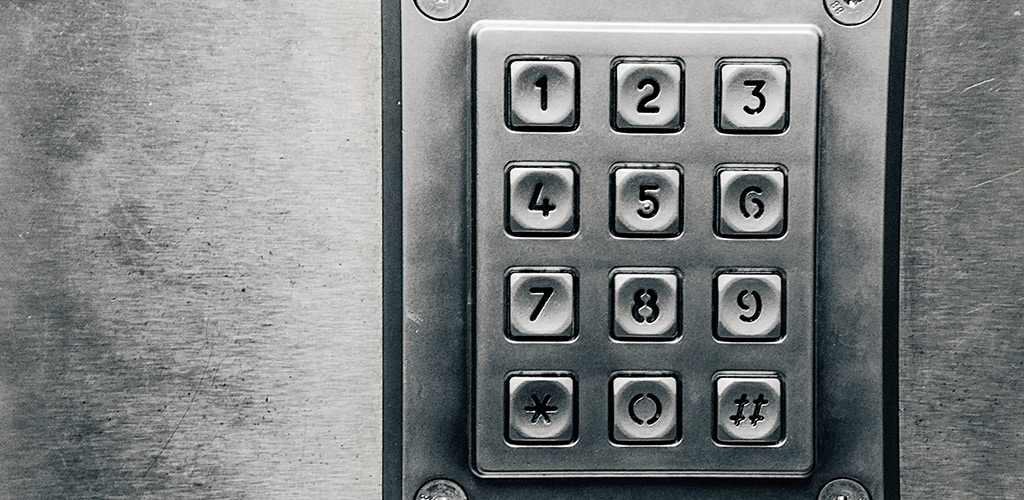
JP Morgan Chase allows for gold storage of slightly more value, but also imposes limits: “You agree and represent that the aggregate value of the contents of the box will not exceed $25,000 at any time and based on this representation further acknowledge and agree that the Bank’s maximum liability, if any, will be limited to $25,000 with respect to any claim arising out of, or otherwise connected with, this Agreement, the box or items stored in the box. For savers strictly following these agreements, storing gold in a safe deposit box is simply not an option.
Fourth, accessing your gold becomes restricted since safe-deposit boxes are captive to normal bank business hours. Should an investor someday decide to sell their gold, the sale needs to be negotiated with a buyer and safe delivery of the gold must be arranged. This can be both time consuming and costly.
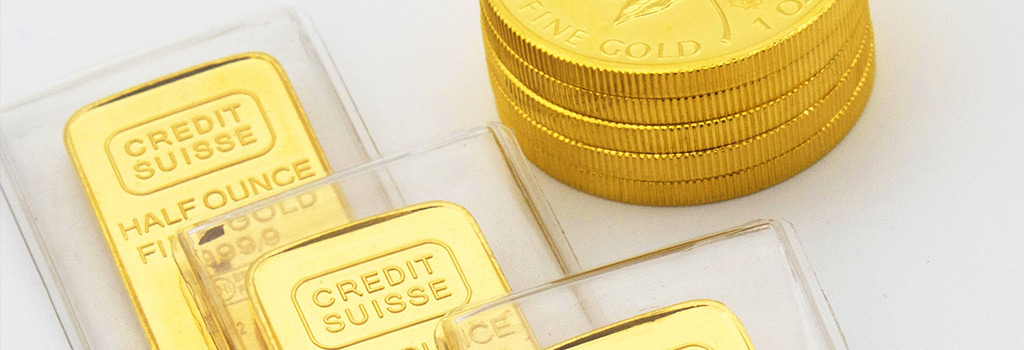
Now What?
An investor who owns physical gold stored in a safe deposit box, or even in a traditional vault, owns a rock in a box. That is, while all the merits relating to gold’s long-term store of value and safe harbor from inflation prevail, there are some distinct shortcomings. Gold storage in a vault is not particularly useful. Coins and bars in a vault are not visible (and therefore lack decorative utility), are only available on certain days at specified times (and therefore lack temporal utility) and often come in large or extremely large denominations (and therefore lack practical utility). At least gold jewelry kept at home can be used for adornment, though this clearly introduces certain risks.
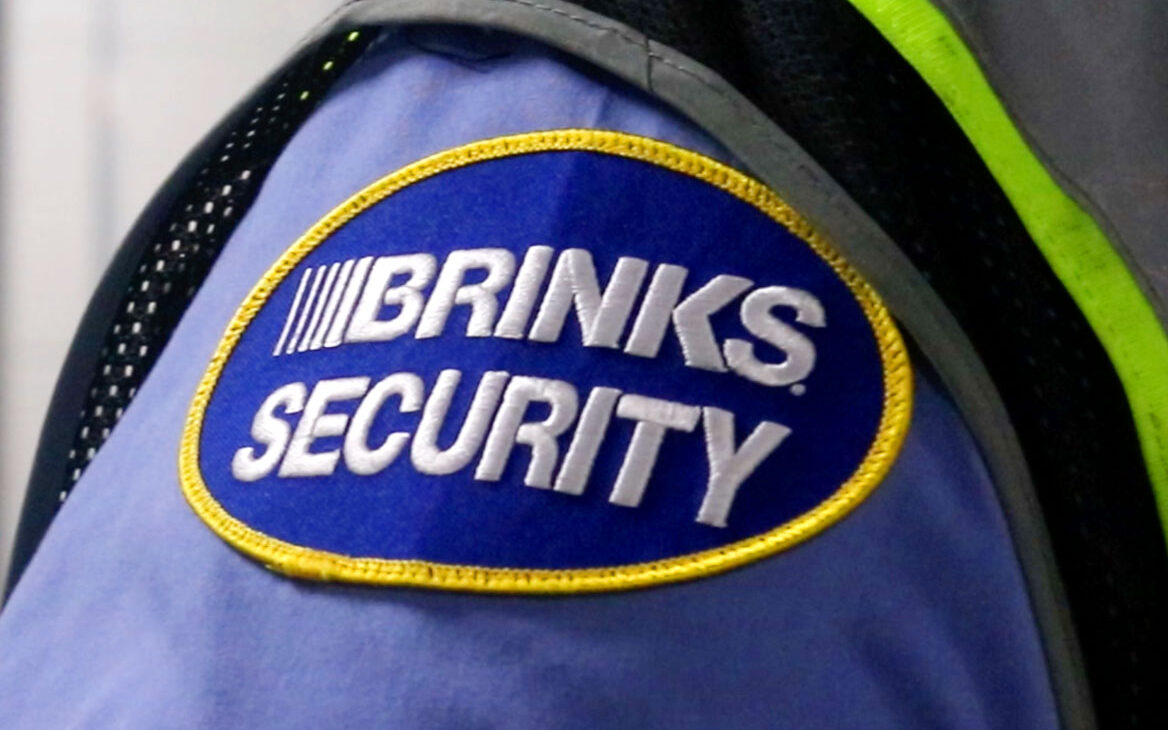
Gold Storage That is Safe and Useful
Gilded has solved the safety problem by partnering with Brink’s for gold storage at select vault locations globally that are outside the banking system and fully insured by Lloyds of London. Gilded has solved the “rock in a box” problem by using modern technology to provide digital access to physical property. With a blockchain entry, ownership can be transferred immediately without imposing burdens on the investor to negotiate pricing or arrange transportation and storage.
This introduces the possibility of gold being pledged for a margin loan, for securitized borrowing, for repo trading, for initial margin to support futures & options trading, and other activities. In short, Gilded offers clients the ability to purchase, and store, insured physical property that can be used as working capital using digital technology. We believe this puts our clients in a particularly good place compared to their alternatives.
Conclusion
As stated initially, deciding where to keep valuables, collectibles and important papers is a common problem. Deciding where to store gold coins or gold bullion, especially in meaningful amounts, is a much less common, and vastly different, problem. A safe deposit box is a box located in a safe (noun). The degree to which it is also safe (adjective) requires careful due diligence and perhaps additional security arrangements. While safety can potentially be augmented with private insurance, convenience is low and transaction costs can be high. And utility is non-existent; gold storage in a safe deposit box is literally a rock in a box.
Attributes such as convenience, utility and safety are best evaluated on a relative, rather than absolute, basis. And circumstances may inform certain priorities over others. An infrequently used hard drive backup or copies of wills or real estate documents are logical candidates for safekeeping in a safe deposit box, which likely offers greater safety and security than storing those items in one’s home or office. However, when deciding among storage alternatives for a meaningful amount of physical gold, considerable care is required.
Gilded clients enjoy the relatively high levels of safety associated with insured physical storage at Brink’s, the kind of convenient digital access that has become ubiquitous in capital markets and private banking, and a degree of usability that increasingly allows physical gold to function as working capital. That’s playing it safe and smart with your gold storage.